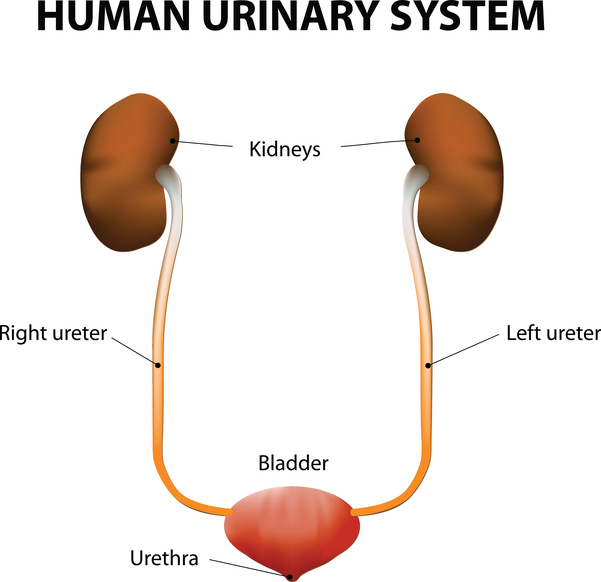Learn

Overall Function
The urinary system functions to filter your blood to remove wastes. The main organs of the urinary system are the kidneys and the bladder. The wastes in your blood are by-products of cellular metabolism. These wastes are toxic and must be removed to live. Urea is an example of a waste that occurs from protein metabolism. Electrolytes minerals in your body that have an electric charge , excess water, and hydrogen ions are other wastes that can build up and must be filtered. The kidneys are two bean-shaped organs that remove these toxins from your blood and produce urine to carry them from the body.


Urine is stored in the bladder until the urethra releases it. Urine is a sterile liquid containing salts, water, and urea. Urine is passed from the kidneys to the bladder via the ureters.
This is a list of several functions of the urinary system:
- Removal of waste product from the body.
- Example: urea and uric acid
- Regulation of electrolyte balance
- Example: sodium, potassium
- Regulation of acid-base homeostasis
- Controlling blood volume and maintaining blood pressure

Filtered Toxins/Wastes
The kidneys serve to regulate:
- Acid-Base Balance
- Blood Volume or Water Content
- Electrolyte Levels
- Waste Removal
Many toxins/wastes are filtered out of the blood by the nephrons of the kidneys. Nephrons are the fundamental filtering units of the kidneys. There are 1 million nephrons in each kidney.
Urea is one of those products that is filtered out of the blood and excreted in the urine. The body cannot store extra proteins, so those proteins are broken down producing urea as a by-product. It is then filtered out of the blood by the kidneys, and excreted through the urine.
Electrolytes are another type of waste that must be removed. These are minerals that have an electrical charge (examples: potassium and sodium). Certain levels of these electrolytes are good, but higher levels require excretion.

Acid-Base Balance
The acid-base balance of the blood is extremely important for cellular functions to take place. Some enzymes do not function in acidic pH ranges while others need a more basic pH range. This pH balance is maintained by the kidneys.
- When the blood is too acidic (less than 7.35), the kidneys will filter out hydrogen ions and absorb more bicarbonate.
- When it is more basic (greater than 7.45), the kidneys reabsorb hydrogen ions and filter out bicarbonate.

Blood Volume Control
Blood volume is important in maintaining sufficient blood pressure. This is controlled partly by the kidneys by adjusting the amount of water and sodium lost into the urine.
- If the blood pressure is decreased, hormones are released that result in the kidneys retaining sodium and water to increase blood volume, thus improve blood pressure.
- If blood pressure is too high, the opposite will occur.

